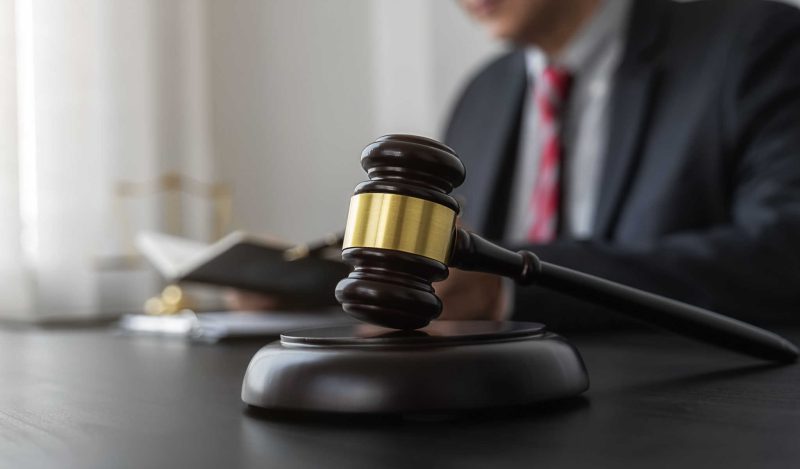Here we continue with a lightly edited version of reporter Tracy Beanz coverage of the case and our activities in court last week. Part one appeared yesterday.
Literally 3 days after Biden took office, the government’s censorship operation was flying. The White House immediately launched a pressure campaign on social media platforms to suppress supposed “COVID misinformation.” The Surgeon General launched his signature “disinformation” initiative at a Virality Project event at the Stanford Internet Observatory. And, Biden himself publicly pressured platforms on July 16, 2021—one day after his press secretary Jennifer Psaki and Surgeon General Vivek Murthy did the same, as the plaintiffs describe in their filing.
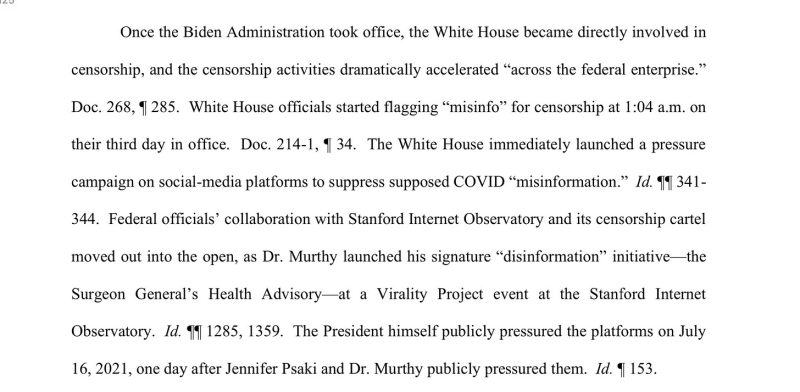

The government claims that the injuries from this censorship are “far outweighed by the governments interest in speaking and taking action to promote the public interest.” This is completely antithetical to everything America stands for, and violates the Constitution. This philosophy isn’t “the consent of the governed;” it is the heavy-handed authoritarian bent we have become all too familiar with. The government also claimed that if the injunction is granted, it would stop the government from being able to disseminate public health information, communicate with social media about criminal activity, and stop them from being able to police terror attacks. This is patently absurd. They can do this without infringing on our God-given Constitutional rights.
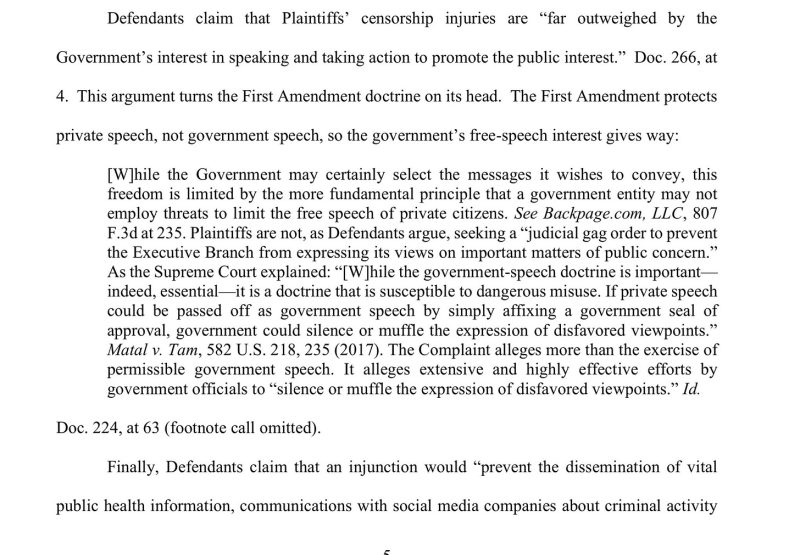

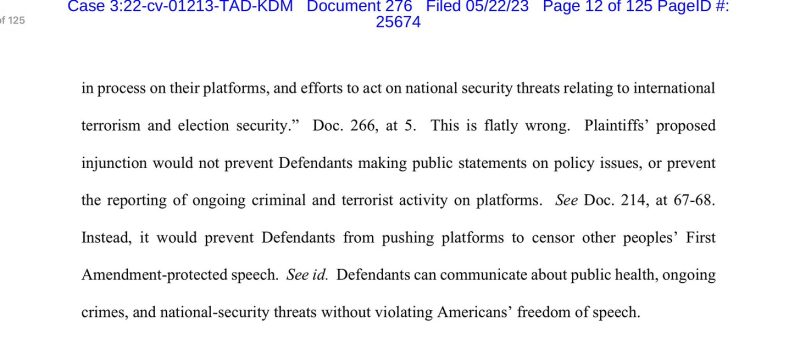

The government’s first claim is that social media companies are economically incentivized to create policy that seeks to censor speech. But then the Plaintiffs went on to cite *just* 19 examples of censorship that never would have happened if the government hadn’t prompted them to.
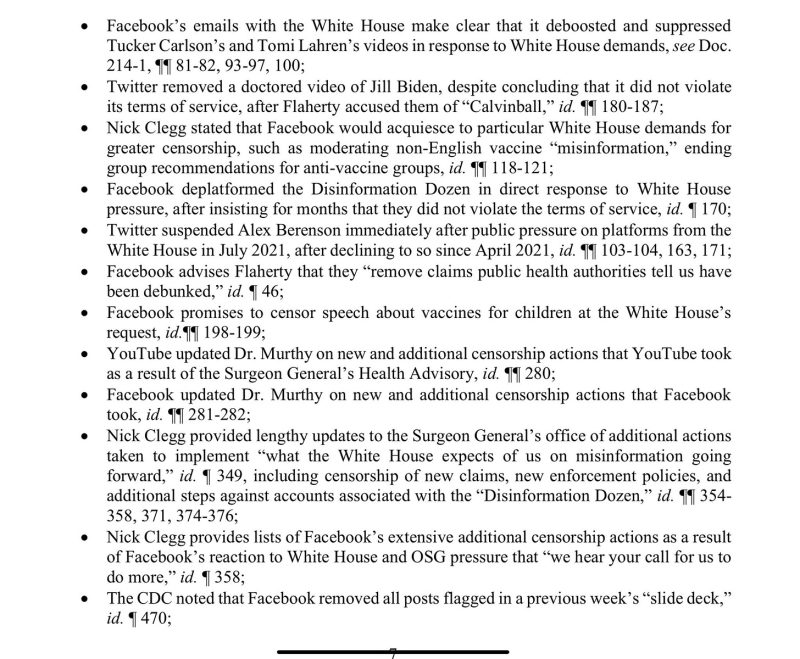

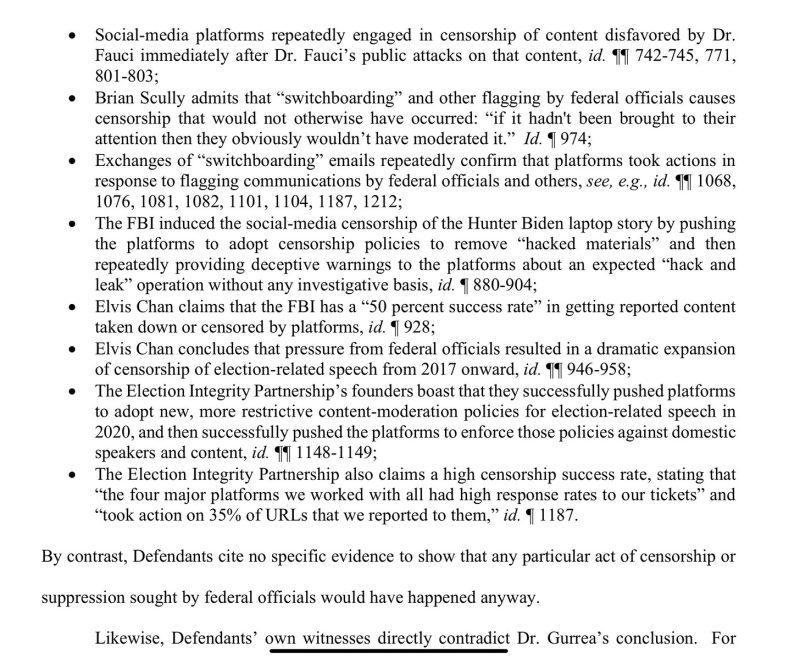

The plaintiffs’ brief goes on to state that the depositions from government witnesses dispute the “economic incentive” excuse. In fact, many of the witnesses testified that social media platforms weren’t doing *enough* to censor and needed to do more to adjust their policies. Twitter specifically said it was “being told in no uncertain terms, by the public and by congress, that it had a responsibility to do a better job protecting future elections.”
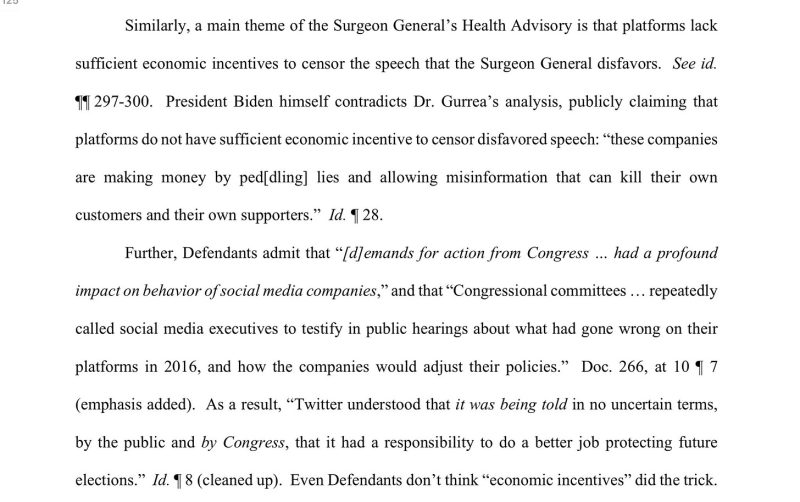

FBI Special Agent Elvis Chan testified that pressure from Congress, the HPSCI [House Permanent Select Committee on Intelligence] and SSCI [United States Senate Select Committee on Intelligence]—including threats of adverse legislative action—prompted social platforms to make changes and censor more and be more “aggressive in account takedowns.”
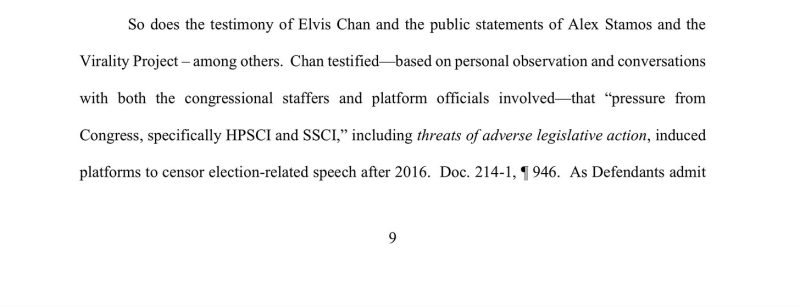

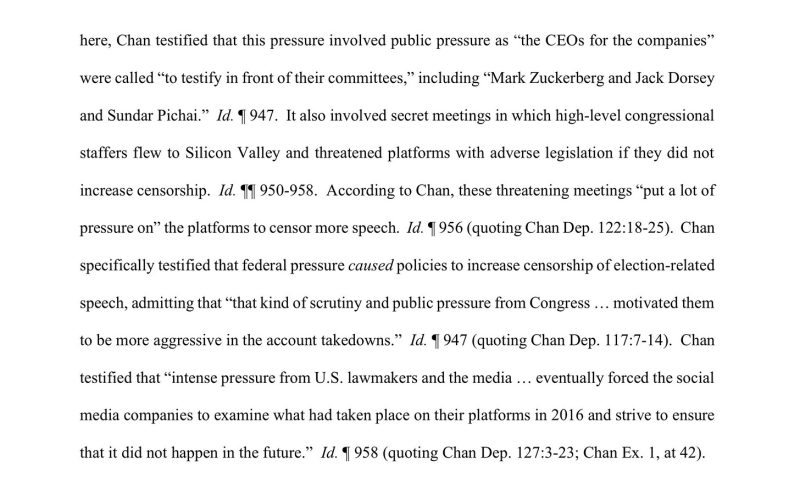

Even Psaki and the White House didn’t believe the “economic incentives” theory, as she lamented that social media companies weren’t doing enough to censor speech. Facebook removed 18 million pieces of covid “misinformation.” That wasn’t enough for Psaki.
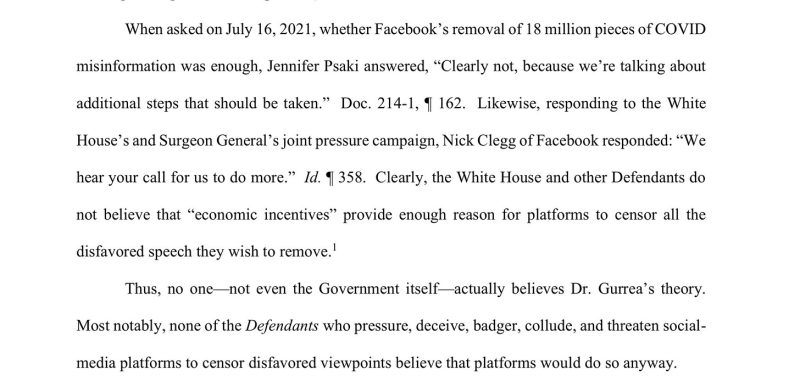

I highly recommend you take the time to read the entire 125 pages, because if I commented on them all we would be here well into tomorrow, but the behavior of Rob Flaherty from the White House was particularly egregious. The Plaintiffs make sure to remind us that the First Amendment doesn’t have a “pandemic” exception.
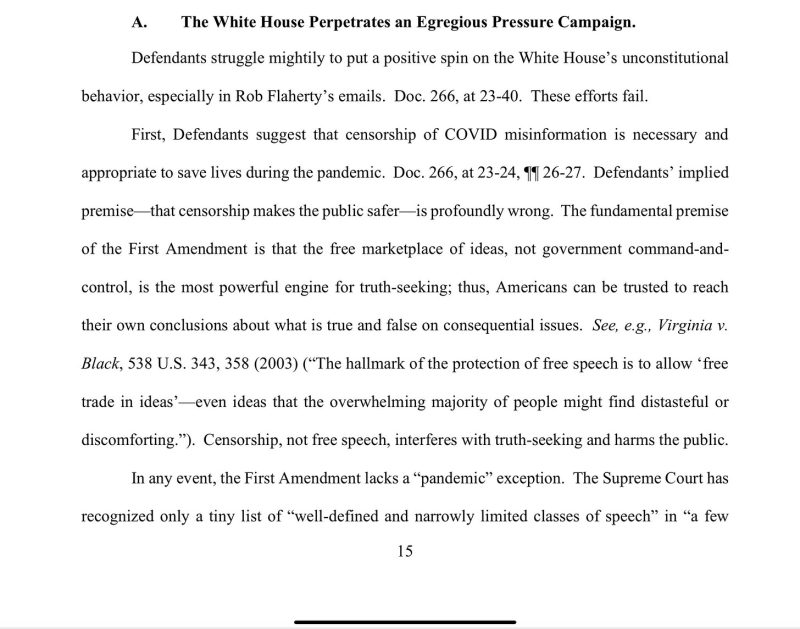

Biden even accused Facebook of “killing people” and the next day threatened Section 230 action on social media companies that didn’t comply with their demands.
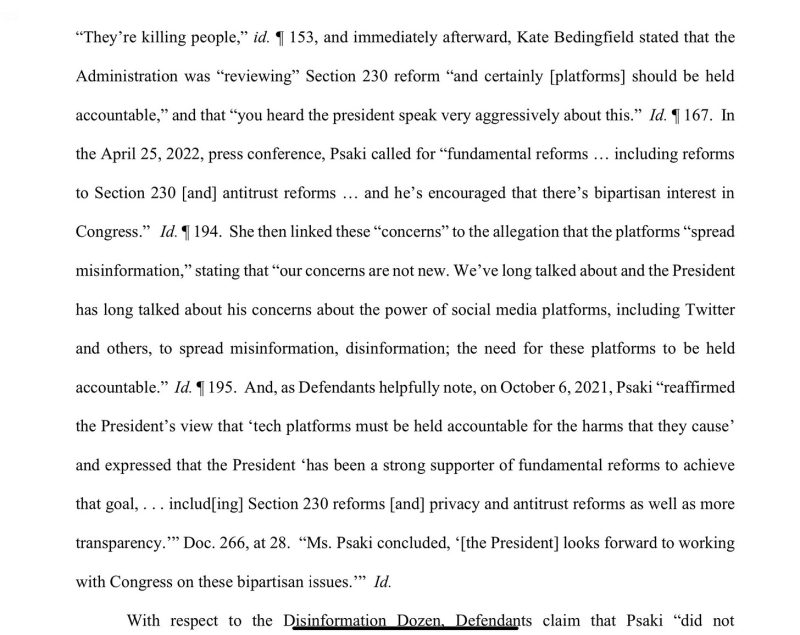

That’s all for today, folks, lest this email get too big for your inboxes. Stay tuned tomorrow for Part 3, where Tracy’s coverage of this week’s events in court continues. In the meantime, you may want to follow Tracy if you are on Twitter and thank her for her excellent coverage of this case.
Republished from the author’s Substack
Join the conversation:


Published under a Creative Commons Attribution 4.0 International License
For reprints, please set the canonical link back to the original Brownstone Institute Article and Author.
